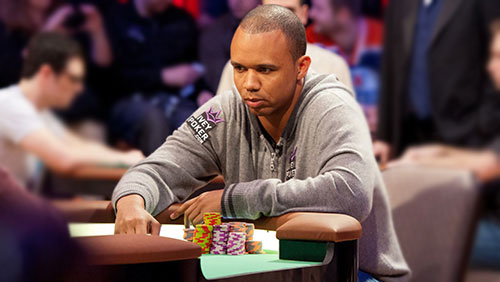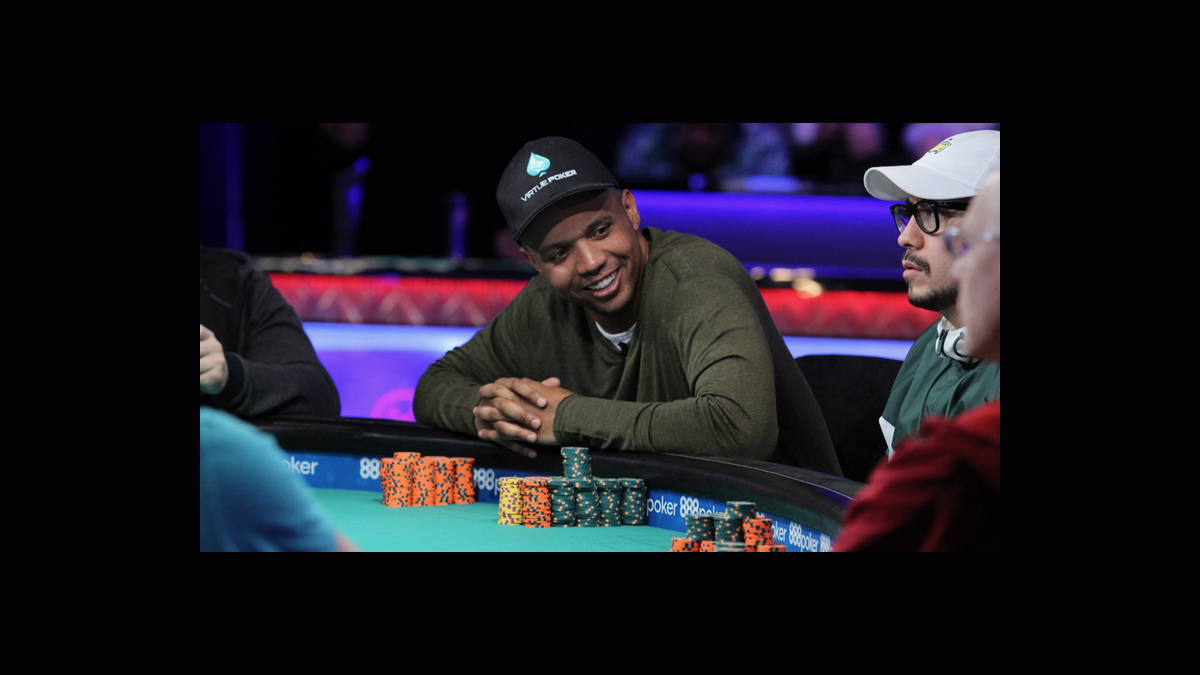
The life and times of Phil Ivey wouldn’t make a good Hollywood movie, but only because films are usually limited to hours instead of days. The man who has won 10 WSOP bracelets, piled cash high in Macau and played High Stakes Poker when it first came into fashion remains an enigma despite being one of the most well-known poker legends still playing.
How did the man who many believed had no house in the early days of his career come out on top after several battle with the house itself? Let’s take a step back in time with a true poker idol – Phil Ivey.
No Home Jerome
From an early age, Phillip Dennis Ivey Junior was based in California, the city of his birth, but a move to New Jersey eventually led to a love of poker in his teens. Playing poker against colleagues at a telemarketing company, the young Ivey would travel to Atlantic City with a fake ID in order to play and would spend so much time at the tables that fellow players called him ‘No Home Jerome’.
Many have called Ivey an obsessive with the game of poker, but obsession burns out. Ivey’s compulsion to play poker was a love affair that has never burned out, and his propensity for bold moves and attention to detail in cash games built him a reputation for being both fearless and hard to bluff.
King of Cash
At the same time, Ivey himself was capable of moves that others thought only he could make. Taking part in more and more cash games at escalating stakes, Ivey was bringing his brand of poker to fans around the world, and his ability to both call bluffs and make ones that are impossible to call is legendary.
While he was excelling at cash, Ivey also played tournaments, and in the year 2000, he took part in the World Series of Poker in Las Vegas. Taking part in a variety of events, the one he had the most success in would be the $2,500-entry WSOP Pot Limit Omaha event. Taking on Amarillo Slim heads-up would have been a daunting prospect for many; Slim had never lost a heads-up at the WSOP. Phil Ivey, however, played without fear and would defeat Slim heads-up to claim his first WSOP bracelet. It was to start a phenomenal stretch of wins.
The Golden Touch and Taking an Edge
Over the course of the next 13 years, Phil Ivey would win another nine WSOP bracelets, including three in 2002, giving him the nickname ‘The Phenom’. Excelling in mixed games, he won in 7 Card Stud Hi/Lo, S.H.O.E. and 7 Card Stud that year alone. With 10 WSOP bracelets by the time he was 38, no-one had got to that mark sooner in their career.
Oddly, not one of Ivey’s 10 WSOP bracelets had come in no limit hold’em, a game that to many he had defined in the Full Tilt era post-Moneymaker. The only four heads-up events he has lost were in mixed events too.
In 2012, Ivey was in a battle of a different kind, however, after an allegation of cheating that would consume much of the following eight years.
Brand Ivey and Beyond
If Ivey’s brand couldn’t be stronger, it was about to take a hit just when it needed it least. After winning over £7 million playing Punto Banco in Crockfords Casino in London, the allegation was made that Ivey and a female accomplice cheated by using information about the playing cards. The ‘edge-sorting’ defect meant that Ivey and his friend could use the information to make more profit, a trick that was repeated in the Borgata Casino at Atlantic City.
Over the course of the next six years, Ivey would battle to clear his name, while both casinos would push for compensation, to such an extent that Ivey’s winnings in the 2019 WSOP Poker Player’s Championship. In the end, a settlement in 2020 looks to have ended the matter, but for some years, it took Ivey away from adding to his WSOP legacy, and it is only in the previous two years of 2018 and 2019 that he has played the number of tournaments fans would hope to see from the poker legend.
Having made vast profits in Macau cash games, whilst maintaining his abilities in no limit hold’em and mixed games alike, including new variants like Pineapple or Short Deck, Phil Ivey remains one of the most respected poker players in the world.
Here, he discusses his life and career with Barry Greenstein. It turns out that no matter how much Phil Ivey reveals, there is always so much more that is left unsaid, the true sign of a poker idol.
